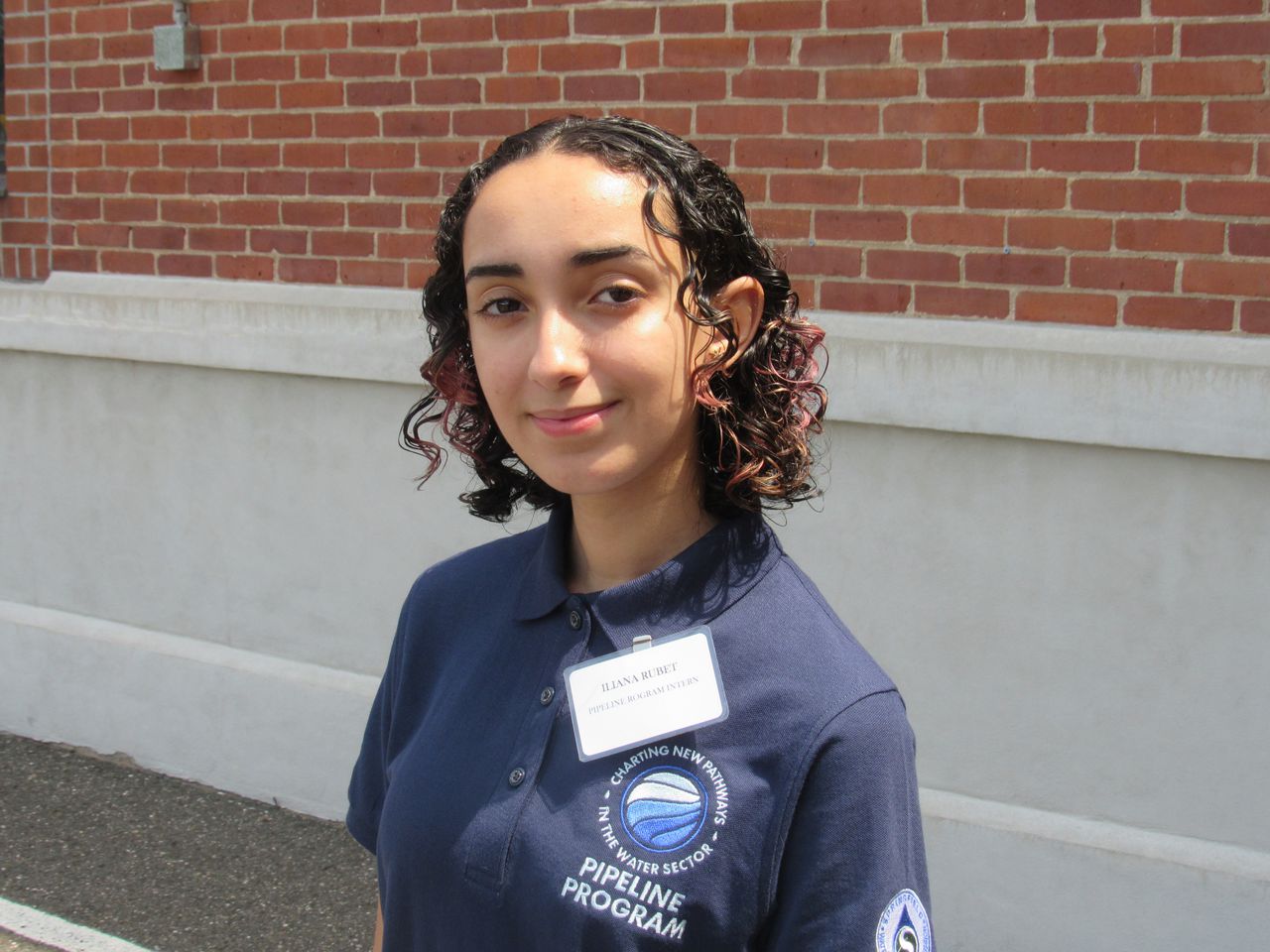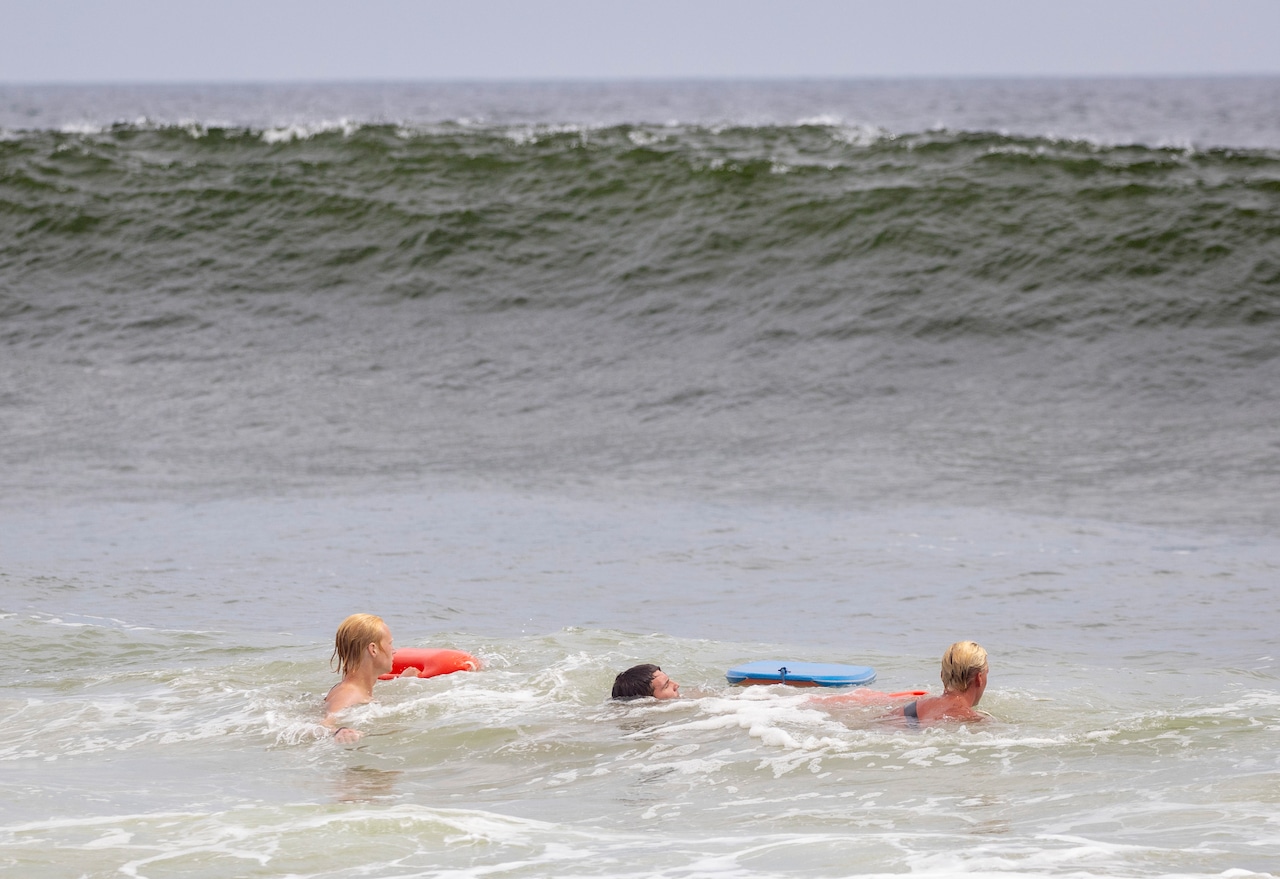SPRINGFIELD — Thanks to his internship at the Springfield Water and Sewer Commission, Anthony Nguyen, 18, now knows how to operate a fire hydrant: how to turn one on and how to measure its pressure.
The graduate of Roger L. Putnam Regional Vocational Technical High School is one of 12 students in an eight-week, $15-an-hour paid internship program to learn the ins and outs of the city’s water supply. This summer is the first time the commission is offering the program.
Its goal is to develop the next generation of water and sewer specialists who can take the places of the ones who retire.
Nguyen said he plans to attend Springfield Technical Community College in the fall and he was interested in studying computer animation. But this internship, he said, has been “eye opening.”
“No matter what field I go into, the things I learned here were nothing less than absolutely important,” Nguyen said. “It taught me how to act in a professional environment.”
The Youth Career Workforce “Pipeline Program” is a byproduct of the commission’s goal to expose more high school students to careers in water management, according to Katie Shae, educational outreach manager for the Water and Sewer Commission.
Shae said the 12 interns who were picked out of the 45 applicants were chosen because they were Springfield high school students, between grades 10 and 12 and displayed a willingness and eagerness to learn.
“It was really tough to decide on (who to pick). We ended up with a great group of 12 interns,” Shae said.
Pam Mathison, internships and pathways coordinator for Springfield Public Schools, said the school district’s career readiness coordinators were “significant partners” in the process of kickstarting and getting students interested in the program.
For eight hours Monday through Wednesday, the interns accompanied staff in different facilities across the greater Springfield area and assisted in different tasks such as engineering, watershed protection, information technology and wastewater operations.
For instance, interns visited the West Parish Filters Water Treatment Plant in Westfield, Field Operations Center in Springfield and Springfield Regional Wastewater Treatment Facility in Agawam.
“It was really important to make sure that kids are approaching this professionally to give them exposure to how you conduct yourself in a professional setting,” said Josh Schimmel, executive director for the Water and Sewer Commission. “It’s great exposure for a lot of these kids to enter the workforce.”
On Thursdays, the interns take the Massachusetts Water Works Association’s course, “Introduction to Becoming a Water Systems Operator,” led by Daniel Laprade, training coordinator for the MWWA.
Laprade said the students get an in-depth look at the science behind how water systems works and what goes into to ensuring drinking water meets quality standards.
The purpose of the course is to help prepare the interns to take the licensing exam to become a drinking water operator, which they have the option to take around the program’s conclusion, according to Shae.
“Hopefully this helps them take the exam and helps them move up,” Laprade said of the course.

Iliana Rubet, 17, intern of the Springfield Water and Sewer Commission. (Jonah Snowden / The Republican)
Iliana Rubet, 17, said she applied for the internship to partake in an experience that was more hands-on.
She said the most exciting part of the program was visiting the Cobble Mountain and Borden Brook reservoirs, otherwise known as the Little River Watershed, the city’s main source of drinking water.
“We toured the area and I thought it was really cool how the stewards were up and patrolling the area, getting to know everybody in the neighborhood and made sure that the environment was okay,” she said.
Like fellow intern Nguyen, she did not realize that so much effort and money were put into having clean water.
“One of the challenges (of this internship) is taking in all of the information,” she said. “There is a lot that goes on here.”






